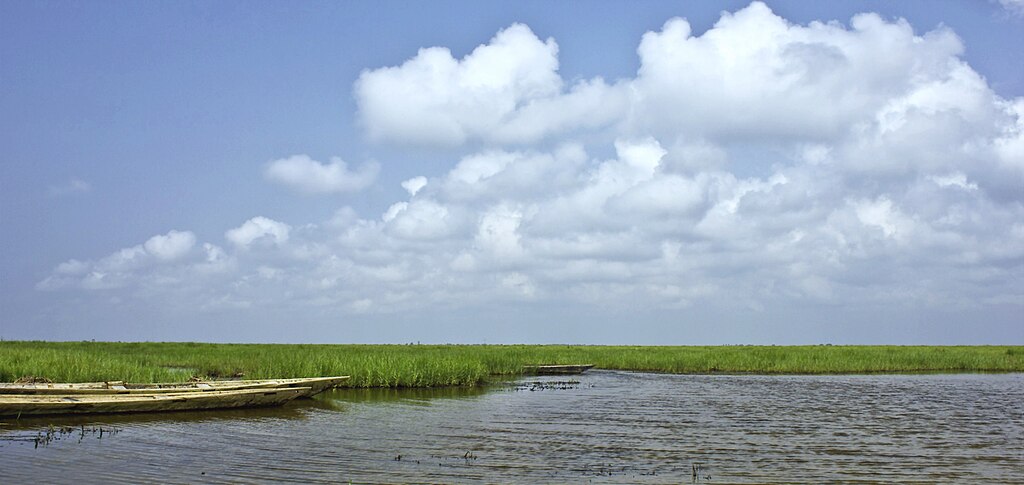Probiodev Project – A Rocha Ghana
Good news!
A Rocha France and A Rocha Ghana are about to embark on a brand new collaboration for the conservation of migratory birds. Thanks to funding from the French Committee of the IUCN obtained under the Support Programme for CSOs (Civil Society Organisations) Active in Developing Countries (ProBioDev), we will be working together to protect one of Ghana’s most important migratory stopover sites for birds: the Kéta lagoon. This lagoon is internationally recognised for its importance for waterbirds (Ramsar site) and regularly welcomes more than 100,000 birds at any one time, including many migrants from Europe. However, very few studies have been carried out to identify and monitor the bird populations present.

Kéta Lagoon – Chad Skeers (CC)
Between 10% and 30% of the population of the districts of the Keta lagoon live in poverty, and the rural communities depend almost entirely on the exploitation of its natural resources, in particular fishing, agriculture, deforestation of the mangroves and basket weaving. The increase in poverty encourages the local population to overexploit the resources of the lagoon, while the decline in resources exacerbates poverty: a veritable vicious circle.
The work to be done
Together, A Rocha France and A Rocha Ghana want to address these issues to better understand and preserve the biodiversity of this site, while encouraging a more respectful alternative management method.
The first stage of the project will involve carrying out a reliable inventory of the bird species present in the area and updating the maps of their habitats. Local community members will then be trained to use this knowledge to effectively monitor and protect bird populations, while developing ecotourism opportunities for the benefit of these communities.
At the same time, the project will focus on training communities, particularly women and young people, in mangrove restoration and sustainable use. Mangroves, which are essential for sustainable fishing, trap pollutants before they reach marine ecosystems and store large quantities of CO2, up to 840 tonnes per hectare per year at maturity.
Finally, to strengthen the climate resilience of communities and food security, the project will train farmers in ecological farming techniques, reducing their dependence on chemical inputs that pollute water and soil and harm flora and fauna.
This collaboration is based on the complementary expertise developed by the two organisations, A Rocha France and A Rocha Ghana. A Rocha France will contribute its knowledge of bird species and their monitoring and inventory techniques, as well as habitat mapping and conservation. For its part, A Rocha Ghana will contribute its knowledge of the field, its relations with local populations, and its expertise in mangrove restoration and climate change adaptation techniques adapted to the Ghanaian context.
